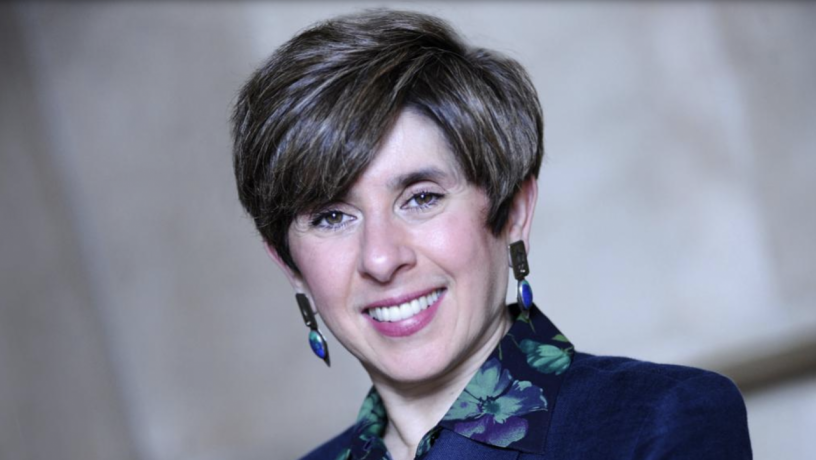Barmak and Colleagues Win AFOSR MURI Award for Precision Testing and Evaluation of Computer Chips
Barmak and Colleagues Win the Highly-Competitive Multidisciplinary University Research Initiative (MURI) Award from the Air Force Office Scientific Research (AFOSR) for Precision Testing and Evaluation of Computer Chips
Katayun Barmak, Philips Electronics Professor in the Department of Applied Physics and Applied Mathematics is a member of the multi-investigator team that has been awarded by the Department of Defense (DoD) a $7.5 million project to develop new concepts for non-invasive precision testing and evaluation of semiconductor chips.
The lead institution is the University of Buffalo (UB), and the lead investigator is Professor Paras Prasad, SUNY Distinguished Professor in UB’s departments of chemistry, physics, medicine and electrical engineering, and executive director of UB’s Institute for Lasers, Photonics and Biophotonics (ILPB). In addition to UB and Columbia University, Boston University, the University of Maryland, the University of Arizona, the University of Central Florida, the National University of Singapore and the University of Cambridge will be participants.
The research is funded by the Air Force Office of Scientific Research through the DoD’s highly competitive Multidisciplinary University Research Initiative (MURI).
“Our ambitious MURI project focuses on testing the structure, function, operation and security of the integrated circuits that comprise semiconductor chips,” says UB researcher Paras Prasad, the project’s principal investigator. We have a great team, and this is exciting work.”
“Microelectronic circuits are omnipresent in our lives, from our phones, computers, cars and appliances to all kinds of industrial and military equipment. We will develop new and dramatically improved ways to ensure that computer chips are authentic and will work as expected. This helps to avoid potentially devastating consequences of either intentional or unintentional malfunction of everything from smartphones to fighter jets.”
Research goals include increasing fundamental understanding of physical processes that could be used to evaluate chip performance and security, and creating new, ultra-sensitive testing strategies that build on this knowledge. The award supports a variety of studies, including several that aim to exploit the power of quantum science and engineering. Monitoring heat generation, using advanced microscopy to study circuits, and detecting ultra-weak electric and magnetic signals around chips are among many areas of interest.
The key team members at the University of Buffalo include: Paras Prasad, PhD, Jonathan Bird, PhD, Alexander Baev, PhD, Andrey Kuzmin, PhD, Vasili Perebeinos, Mark Swihart, PhD, Luis Velarde, PhD, and Hao Zeng, PhD.
Co-principal investigators include Katayun Barmak, PhD, at Columbia University; Alexander Sergienko, PhD, at Boston University; Ronald L. Walsworth, PhD, at the University of Maryland; and John Schaibley, PhD, at the University of Arizona. Other senior investigators include Abdoulaye Ndao, PhD, at Boston University and Kevin Coffey, PhD, at the University of Central Florida. Independently funded international partners include Jeroen A. van Kan, PhD, at the National University of Singapore and Mete Atatüre, PhD, at the University of Cambridge.
The team will also partner with researchers in the Air Force Research Laboratory, including Joshua Hendrickson, PhD, and Michael Slocum, PhD, both in Ohio. The lead program manager for the grant is Brett Pokines, PhD, who heads the Agile Science of Test and Evaluation program at the Air Force Office of Scientific Research.

